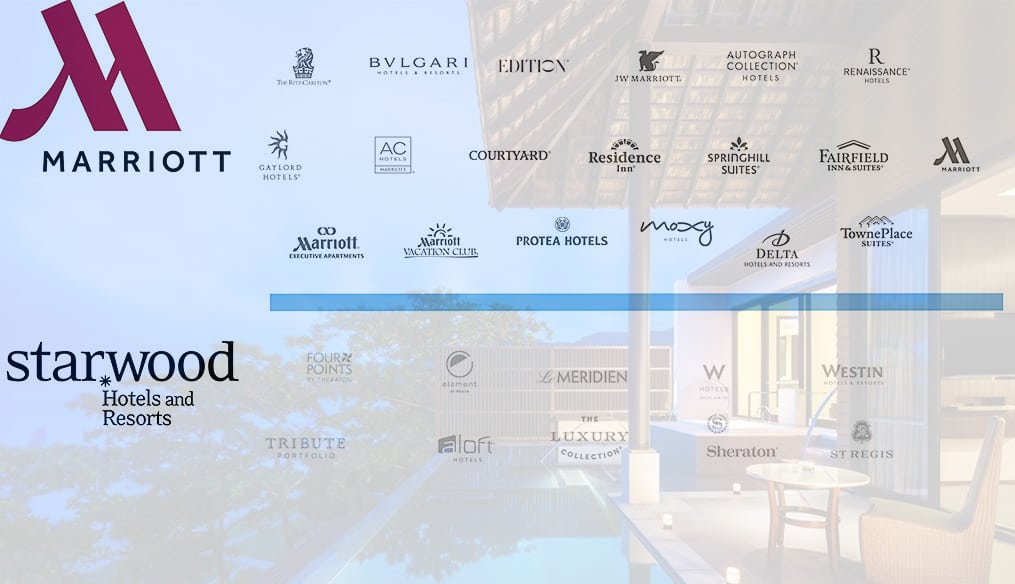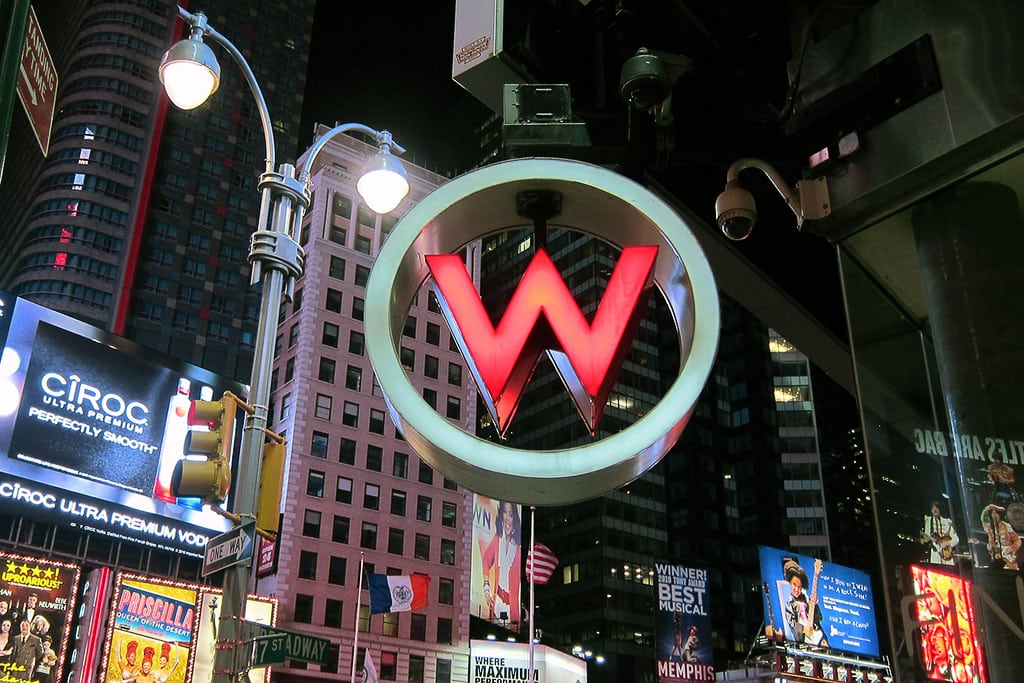Skift Take
Marriott was able to make an offer when many doubted it could muster what it takes.
After many pundits seemed to point to Anbang Insurance Group’s proposed acquisition of Starwood Hotels & Resorts Worldwide leading to a closed deal, Starwood and Marriott International announced this morning that they agreed to an amended merger agreement, and intend to create the world’s largest hotel company, as planned in November 2015.
The decision by the Starwood board to stick with Marriott seems motivated by long-term goals—a bigger, combined Starwood and Marriott will have more bargaining power in the long run against online travel agencies, and will boast more scale, with a total of 1.1 million rooms in more than 5,500 hotels around the world spread out over 30 different brands.
Bruce Duncan, Starwood chairman, said in a statement, “Marriott’s revised offer provides the highest value to our shareholders through long‐term upside potential from shared synergies and ownership in one of the world’s most respected companies, as well as significant upfront cash consideration. With its asset light business model, multi‐year industry leading unit growth, powerful brands, and consistent return of capital to shareholders, Marriott stock has consistently traded at valuation premiums to its public peers.”
For Marriott’s part, it appears that the last-minute bid from Anbang Insurance Group forced the company to re-evaluate its initial offer, which some analysts thought was undervalued to begin with.
During a call with investors this morning, Marriott CEO Arne Sorenson said, “In some respects, you can look back and say maybe the deal [from November] was almost too good, which is what drew in another bidder at the last moment. We’ve spent a lot of time talking through what the right response is, and looking at the value that can be created for our shareholders thought this deal. To state the obvious: It’s not as good as deal as the one we were about to vote on and close at the end of March, but it’s a deal that we are still interested in pursuing.”
The New Terms
The new terms of the agreement, excluding Starwood’s time share business, value Starwood at $79.53 per share, or a total of $13.6 billion. It is larger than the $78 per share, or $13.2 billion, offered last week by a consortium led by Beijing-based Anbang Insurance Group.
The new transaction consists of $10 billion in Marriott stock, based on the closing price of $73.16 on March 18, and $3.6 billion in cash, based on approximately 170 million outstanding Starwood shares.
The new offer from Marriott means Starwood shareholders would receive $21 in cash and 0.8 shares of Marriott International Class A common stock for each of their Starwood shares. After this deal closes, Starwood shareholders would own approximately 34 percent of the combined company’s common stock, based on current shares outstanding.
Including the timeshare business, the new offer values Starwood stock at $85.36 and Starwood stockholders will receive Interval Leisure Group common stock from the spin‐off of the Starwood timeshare business and subsequent merger with ILG, currently valued at $5.83 per Starwood share, based on ILG’s share price as of market close on March 18.
With the new agreement, both companies expect to forge synergies worth $250 million within two years after closing — $50 million more than the two companies originally estimated back in November.

Loyalty Programs and Big Sales Force
Because Marriott and Starwood’s original merger agreement had already cleared regulatory hurdles related to pre-merger anti-trust reviews in the U.S. and Canada, they believe the new agreement will close quickly in the middle of 2016. Approvals from the EU and China are currently pending.
Throughout this morning’s investor call, during which Sorenson participated from Cuba, where both Marriott and Starwood have just received approval from both the U.S. and Cuban governments to begin doing business, Sorenson reiterated the strength, not only of the scale of the combined company, but also the power of its combined loyalty programs and salesforce.
Sorenson said initially the Marriott Rewards and Starwood Preferred Guest programs would run parallel to each other, and that although both companies continue to operate independently as competitors, Marriott is still investing its efforts in proceeding with the merger agreement.
Marriott has rescheduled its shareholder vote from March 28 to April 8. During this period, however, there’s still a chance for Anbang, or other interested parties to come back with a more attractive offer to buy Starwood.
It’s Not Over Until It’s Over
“If another bid comes in and they [Starwood] think it’s worth pursuing that, they could do that,” Sorenson said. “They are not barred from considering other transactions that may come about.”
Under the newly revised agreement between Starwood and Marriott, if Starwood does decide to go with Anbgang or another company, that breakup fee has now increased from $400 million to $450 million. Starwood would also have to reimburse Marriott for up to $18 million of costs incurred by Marriott in connection with the financing of the transaction, if the termination fee is payable.
A source close to the consortium says that because the new breakup fee inched up by only $50 million, Starwood could potentially be leaving the door open for a rebid from Anbang, believing that Anbang, J.C. Flowers & Co., and Primavera Capital could offer much more. That same source also suggests that this bid from Marriott may likely be its final one, and that Marriott is at the end of its leverage ratio.
David Loeb, managing director and senior real estate research analyst for Milwaukee-based Baird Equity Research, told Skift he expects Anbang to come back with a more definitive counter-offer that Starwood will most likely accept. “This new deal still leaves the door open for Anbang to come back,” he said, because it’s about 82 to 83 cents more per share than what Anbang was offering. “If they [Anbang] don’t come back, it’s Marriott’s deal. But I think that’s unlikely. I think Marriott is done.”
Now, it’s up to Anbang’s consortium to decide if it wants to up their offer further or, perhaps, propose a new deal that might focus more on acquiring Starwood’s real estate properties (valued at some $4 billion) instead of buying that entire hotel management company, as some analysts have suggested.
Loeb thinks it’s unlikely Anbang is only interested in Starwood’s real estate, however. “If they just wanted the assets, they might have just bid for the assets,” he said. “On top of that, they could always just go to Marriott later to bid for the assets. It’s their intention to keep this all together.”
So stay tuned; it’s not over until it’s over.
Chronology of Marriott-Starwood-Anbang:
- Monday, March 14: Starwood Gets Takeover Bid by Consortium Led by Chinese Firm Anbang
- Tuesday, March 15: Starwood Rival Takeover Bid: What It Means for Brands, Executives and Shareholders
- Friday, March 18: Starwood Accepts Anbang’s Takeover Bid, Marriott Plans a Counter-Offer
- Friday, March 18: Will Marriott Be Able to Top Anbang’s Offer for Starwood?
Have a confidential tip for Skift? Get in touch
Tags: anbang, marriott, marwood, starwood
Photo credit: The W Hotel Times Square. Today Marriott topped a rival bid to buy W's parent company Starwood Hotels and Resorts. NCinDC / Flickr
